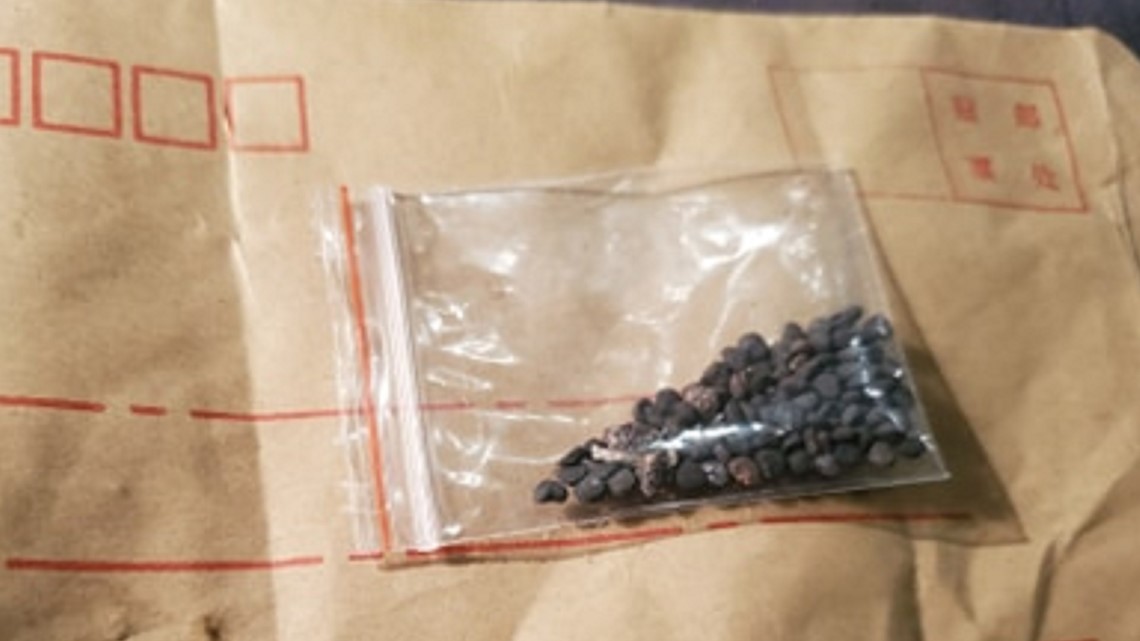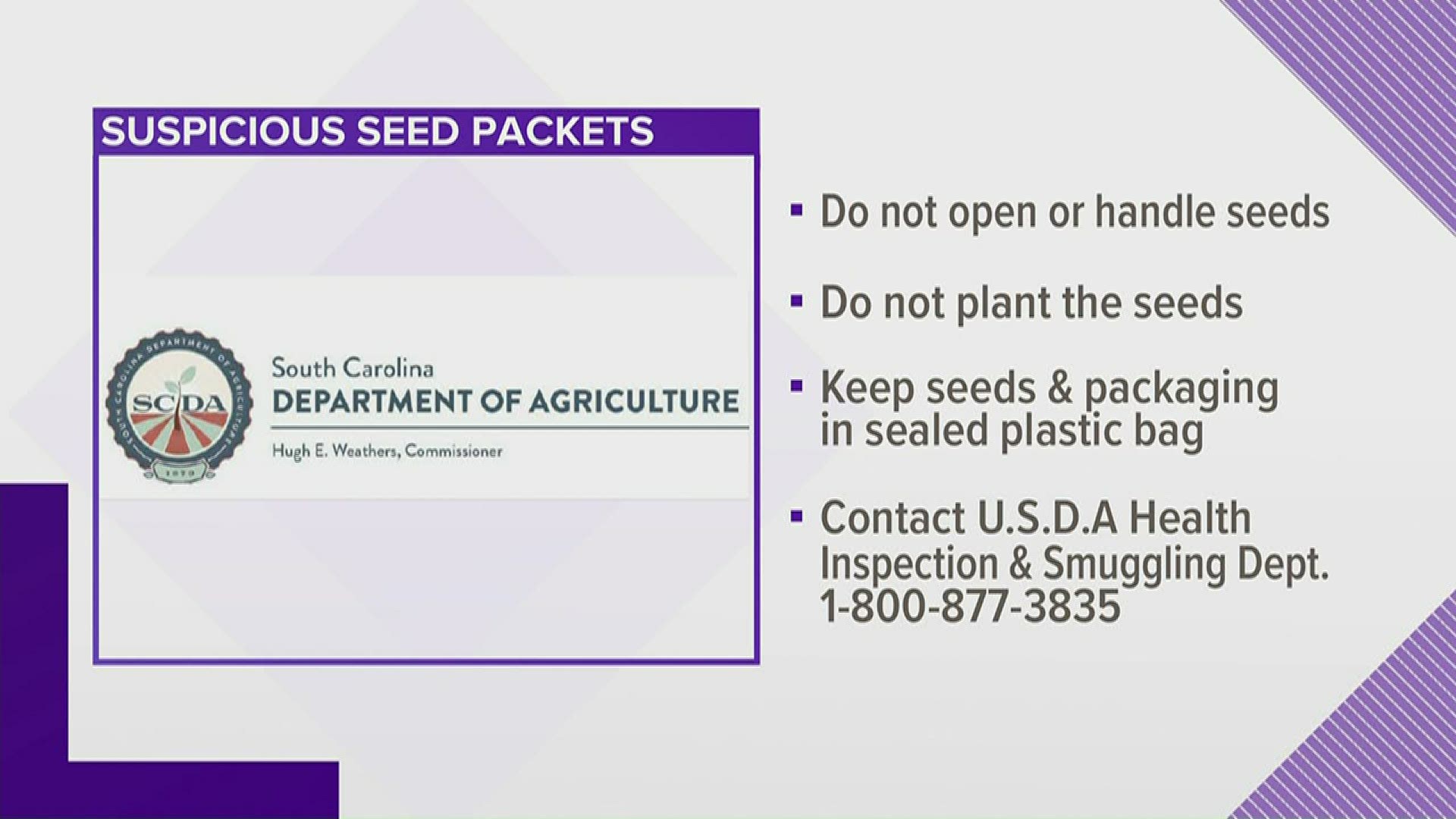COLUMBIA, S.C. — Unsolicited packages of seeds have begun showing up in mailboxes in South Carolina. The envelopes containing the seeds appear to have Chinese characters printed on them.
The South Carolina Department of Agriculture (SCDA) and Clemson University's Regulatory Services division are working together to investigate the unsolicited seed packages and warns recipients of the packages against planting the seeds as they may be an invasive species of plant. The U.S. Department of Agriculture's Animal Plant Health Inspection Service (APHIS) is collecting reports and coordinating a national investigation.
If you receive seed packages that you did not order, APHIS asks:
- Do not open the seed packets or handle the seeds.
- Do not plant unidentified seeds. They may be invasive species that could displace or destroy native plants and insects.
- Do not throw the seeds in the trash or where they may end up in a landfill.
- Retain the seeds and packaging and put them in a zip-top bag.
- If the seeds have been planted, leave the seeds/plants in the ground until you receive further instruction from your State department of agriculture or APHIS.
- Contact the USDA APHIS Smuggling Interdiction and Trade Compliance (SITC) program at their website, by phone at 800-877-3835 or by email at SITC.Mail@aphis.usda.gov.
South Carolina is the latest state to have unordered seeds show up in mail delivery. Virginia issued a warning to residents last week about the possible danger of planting unsolicited seeds.
RELATED: Virginia: You might get an unsolicited package of seeds from China, but don't open it. Here's why
Officials said invasive species wreak havoc on the environment, displace or destroy native plants and insects and severely damage crops.
“If these seeds should bear invasive species, they may be a threat to our environment and agriculture,” said Steve Cole, director of Clemson's Regulatory Services unit. "We don't want unknown species planted or thrown out where they may wind up sprouting in a landfill."
Answers to further questions may obtained from the South Carolina Department of Agriculture’s Seed Lab at 803-737-9717 or seedlab@scda.sc.gov, Clemson University’s Department of Plant Industry (invasives@clemson.edu;) or a local Clemson Extension Office.


OTHER HEADLINES:

